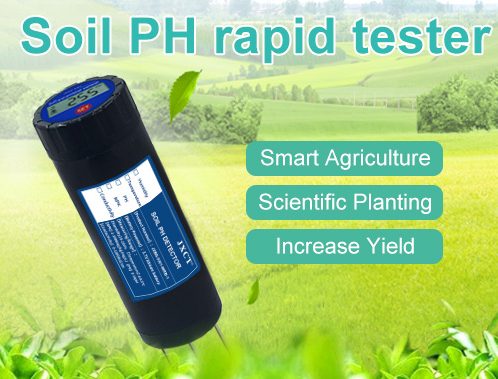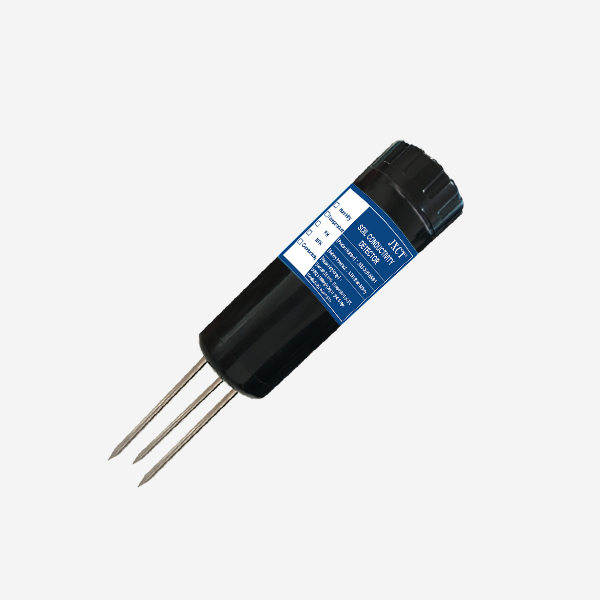Soil pH is a critical parameter that significantly influences plant growth, nutrient availability, and overall soil health. The pH level of soil, which measures its acidity or alkalinity, plays a pivotal role in determining the availability of essential nutrients to plants. As such, accurate measurement and monitoring of soil pH are essential for farmers, agronomists, and researchers to make informed decisions about crop management. Soil pH sensors are advanced tools precisely measure and monitor the pH level of soil, providing valuable insights for optimizing plant growth. This article explores the function, working principle, and applications of soil pH sensors, shedding light on their importance in modern agriculture.
Function of Soil pH Sensors

Soil pH sensor is a special instrument for measuring the pH value of soil samples, with high precision and accuracy. The role these sensors play in providing real-time information about the soil allows one to assess the condition of the soil. By understanding the pH status of the soil, agricultural professionals can optimize nutrient availability, mitigate the impact of soil acidity or alkalinity on plant growth, and promote sustainable soil management practices.
Working Principle of Soil pH Sensors
Soil pH sensor operate based on fundamental principles of electrochemistry and ion-selective measurement. The working principle of soil pH sensors involves the use of a pH electrode or sensor probe that interacts with the soil sample to measure the concentration of hydrogen ions (H+) in the soil solution. The pH electrode comprises a glass membrane that selectively responds to the activity of hydrogen ions, generating a voltage signal proportional to the pH level of the soil. This voltage signal is then converted into a pH reading, providing an accurate measurement of soil acidity or alkalinity.

The soil pH sensor probe is inserted into the soil sample, allowing direct contact between the electrode and the soil solution. The sensor probe may be equipped with a reference electrode to maintain a stable electrical potential, ensuring accurate pH measurement. Some soil pH sensors also incorporate temperature compensation to account for the influence of temperature on pH readings, further enhancing measurement accuracy.
The pH measurement process involves the generation of a potential difference across the glass membrane of the pH electrode, which is then converted into a digital or analog pH reading by the sensor electronics. Advanced soil pH sensors may feature digital interfaces, wireless connectivity, and data logging capabilities, enabling seamless integration with precision agriculture systems and environmental monitoring platforms.
Applications of Soil pH Sensors
Soil pH sensors find diverse applications in agriculture, horticulture, environmental science, and research, serving as valuable tools for soil fertility management, crop production, and ecosystem monitoring. The following are key applications of soil pH sensors:

Precision Agriculture: Soil pH sensor are integral to precision agriculture practices, enabling farmers to make targeted lime applications and optimize soil pH for specific crops. By mapping soil pH variability within fields, farmers can implement site-specific soil amendment strategies to maximize crop yield and quality.
Soil Fertility Management: Agricultural professionals use soil pH sensors to assess soil fertility and identify pH-related nutrient deficiencies or toxicities. By maintaining optimal soil pH levels, farmers can enhance nutrient availability and uptake by plants, contributing to healthy crop growth.
Environmental Monitoring: We commonly use soil pH sensors often in environmental monitoring projects to assess the impact of soil pH on natural ecology. Monitoring soil pH variations in sensitive habitats helps in understanding the ecological implications of soil acidity or alkalinity.
Research and Education: Soil pH sensor are valuable tools for research institutions, universities, and educational programs, facilitating studies on soil chemistry, nutrient dynamics. These sensors contribute to advancing scientific knowledge and promoting sustainable agricultural practices.
Land Reclamation and Remediation: Soil pH sensor play a role in land reclamation projects and soil remediation efforts, where monitoring and adjusting soil pH are critical for restoring degraded lands, rehabilitating mine sites.
The Future of Soil pH Sensors
In addition, advances in sensor calibration will improve the reliability of soil pH sensors, allowing users to optimize soil management. Combining soil values with other soil parameters will make soil management a holistic approach. In addition, advances in sensor calibration and maintenance-free devices will improve the reliability of soil pH sensors. Combining soil pH data with other soil parameters will make soil management a holistic approach.
Conclusion
Soil pH sensors are an indispensable tool for agricultural environmental management, providing critical information for optimizing soil fertility. By accurately measuring soil pH, professionals can make informed decisions about lime application and fertilizer management. Ultimately contributing to sustainable agriculture. Soil pH sensors are integrated with precision agriculture systems, and they will play a key role in sustainable soil management practices.
